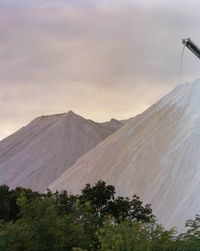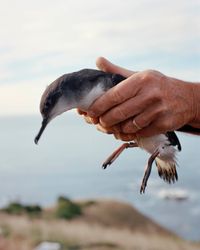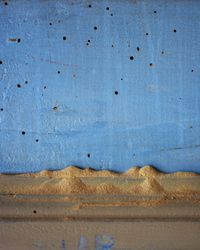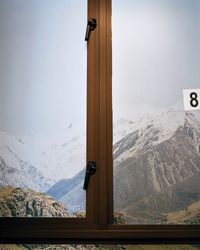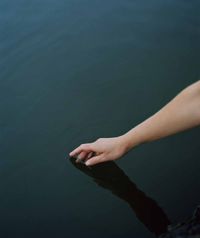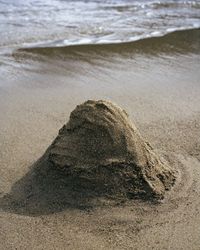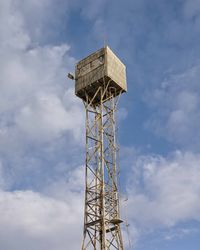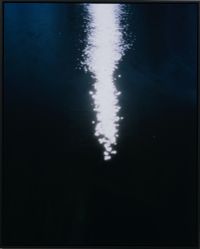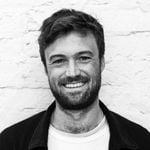Conor Clarke is a New Zealand artist whose photographic practice examines the politics of image-making and representation. Drawing on 18th-century aesthetic conventions, her work particularly examines how historical methods of representation impact cultural understandings of the natural landscape.
Read MoreConor Clarke was born in Auckland, New Zealand. She is of Ngai Tahu, Scottish and Welsh descent. Clarke attended the Elam School of Fine Arts, where she graduated with a BFA in 2005. After living between Berlin and New Zealand, she returned to New Zealand in 2019 and is currently a lecturer in Photography at Ilam Canterbury University.
Much of Conor Clarke's work examines the histories and politics of landscape representation. Her practice often references the conventions of Romantic painting, and their enduring impact on representations of the natural landscape.
Early series like 'Viewing Stations Around Rummelsburger Bucht' (2010) draw on the Picturesque, a Romantic convention that prescribes the representation of landscape according to specific framing devices and subjects. Initially a compositional device practised by artists, seeking out Picturesque scenery soon became a tourist sport. By apprehending the landscape through a Picturesque frame, Victorian hobbyists laid claim to both their good taste and the land itself, producing a 'trophy image' of their aesthetic conquest.
In 'In Pursuit of the Picturesque: In Pictures (Observations from New Zealand), 2013–14', Clarke takes images of the New Zealand landscape according to the compositional rules of the Picturesque. By posting the series to her Instagram account, Clarke compared the filters and framing techniques of the social media platform to the Claude Glass, a small, tinted mirror that allowed Picturesque artists and enthusiasts to frame natural scenery in the manner of Baroque landscape artist Claude Lorrain.
The series includes works such as Seeing Nicolas seeing Nature as a picture. Buller River / Kawatiri, Buller Gorge (2014). Taken against a foggy mountain view, the image depicts a man observing the landscape in front of him with his back turned to the viewer. Interrogating how historical methods of representation influence contemporary relationships to land, Clarke suggests the Western relationship to nature continues to be consolidated through the production and possession of images, much like the Picturesque.
Conor Clarke has held residencies in New Zealand at Waitawa Regional Park, Auckland, in 2015 and at Tylee Cottage, Whanganui, in 2017. Her 2017 residency resulted in the photographic series 'Ground Water Mirror' (2017–2018). Drawing on her experience living between Berlin and New Zealand, Clarke was influenced by the proximity of urban residents in Berlin to the city's groundwater, which flows throughout the city using a network of overhead pipes. Continuing to explore Western constructions of nature, the series examines the romanticisation of water as a remote, idyllic 'destination', rather than an indispensable and ubiquitous presence in daily life.
Instead of distanced, idealised depictions of nature, the series includes images of rivers, waterfalls, and people, shot at close range. An arm reaches out to touch the surface of a body of water in Left bank, middle reach, high expectations (2017), and a woman wears a veil of chainmail in the bust portrait Veil of the Soul (2018). Refusing a remote photographic perspective, Clarke disrupts the West's separation between nature and culture, asserting a relationship to nature as one of identification, in contrast to one of possession.
Building on her exploration of the relationship between photography, landscape representation, and power, Clarke's 2020 series 'As far as the eye can reach' decentres sight as the most privileged of the human senses. The series includes photographs made in response to descriptions given by members of the blind and low-vision community of a landscape as they remember it. The descriptions are recorded in braille across the surface of the images, and are also accessible through a sound recording of Clarke's voice.
The sky over Colombus (described by Shaun Lowe) (2020) features an amorphous pink shape that occupies most of the frame. Mostly abstract, the image provides more of a sensory impression rather than a distinct image. Viewers are encouraged to read the braille with their hands or listen to Clarke's recording for a description of the landscape. Alluding to histories of colonial land surveying, Clarke resists the visual capture of a landscape that occurs with looking at or photographing it. Instead, she produces a multi-sensory visual experience, presenting the land as something to be perceived rather than apprehended.
Conor Clarke has presented her work in exhibitions and fairs internationally. Her solo shows include As far as the eye can reach, Two Rooms, Auckland (2021); Unchained Melody, Centre of Contemporary Art Toi Moroki, Christchurch (2019); The End of Wordsworth Street, Sarjeant Gallery Te Whare o Rehua Whanganui, New Zealand (2018); Scenic Potential, Two Rooms, Auckland (2015); and In Pursuit of the Picturesque: In Pictures (Observations from New Zealand) (2013–14), Das Giftraum, Berlin (2013).
Clarke's group shows include Touching Sight: Conor Clarke, Emma Fitts + Oliver Perkins, Christchurch Art Gallery Te Puna o Waiwhetū, New Zealand (2020); In the Anthropocene, Bartley and Company Art, Wellington (2017); Renaissance Photography Prize exhibition, Getty Images Gallery, London (2015); Typologien, Jarvis Dooney, Berlin (2014); I Could Have Sworn I, Grimmuseum, Berlin (2011), and Mtaär, Istanbul (2010); and From the Depths of Suburbia: Photo-media from Auckland, QCA Galleries, Queensland (2008). Between 2016 and 2020, Clarke's work was included in the major group exhibition The Devil's Blind Spot: Recent Strategies in New Zealand Photography, curated by Lara Strongman, at Christchurch Art Gallery.
Conor Clarke has also exhibited at the Auckland Art Fair, New Zealand. She has been the recipient of multiple photography prizes, including the Landscape Award at the Canon/Parkside Media Landscape Photography Awards (2006), the Reportage Award at the Metro Canon Young Photographers Awards (2007), and the Best Series award at the Renaissance Photography Prize, London (2015).
Alena Kavka | Ocula | 2021
